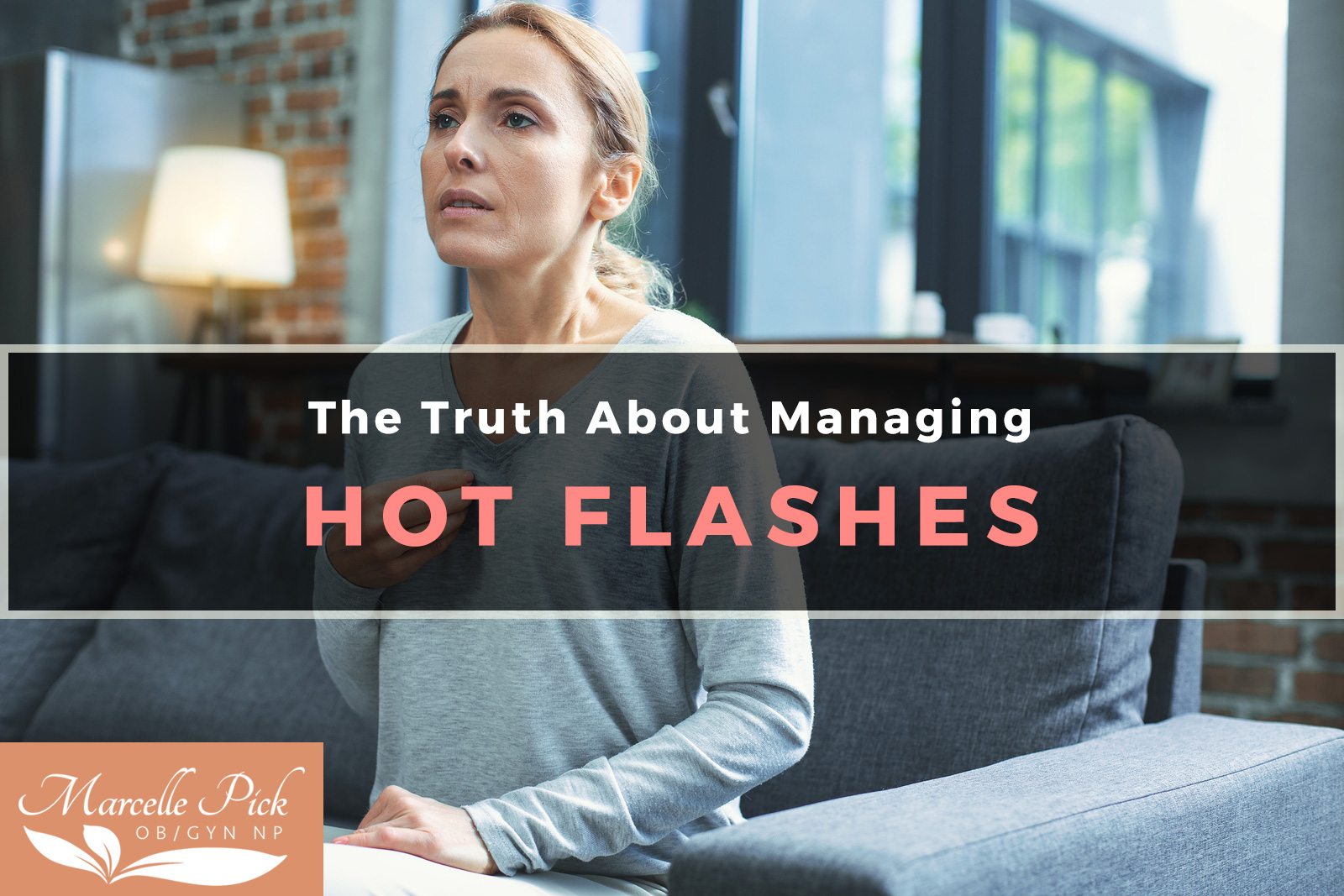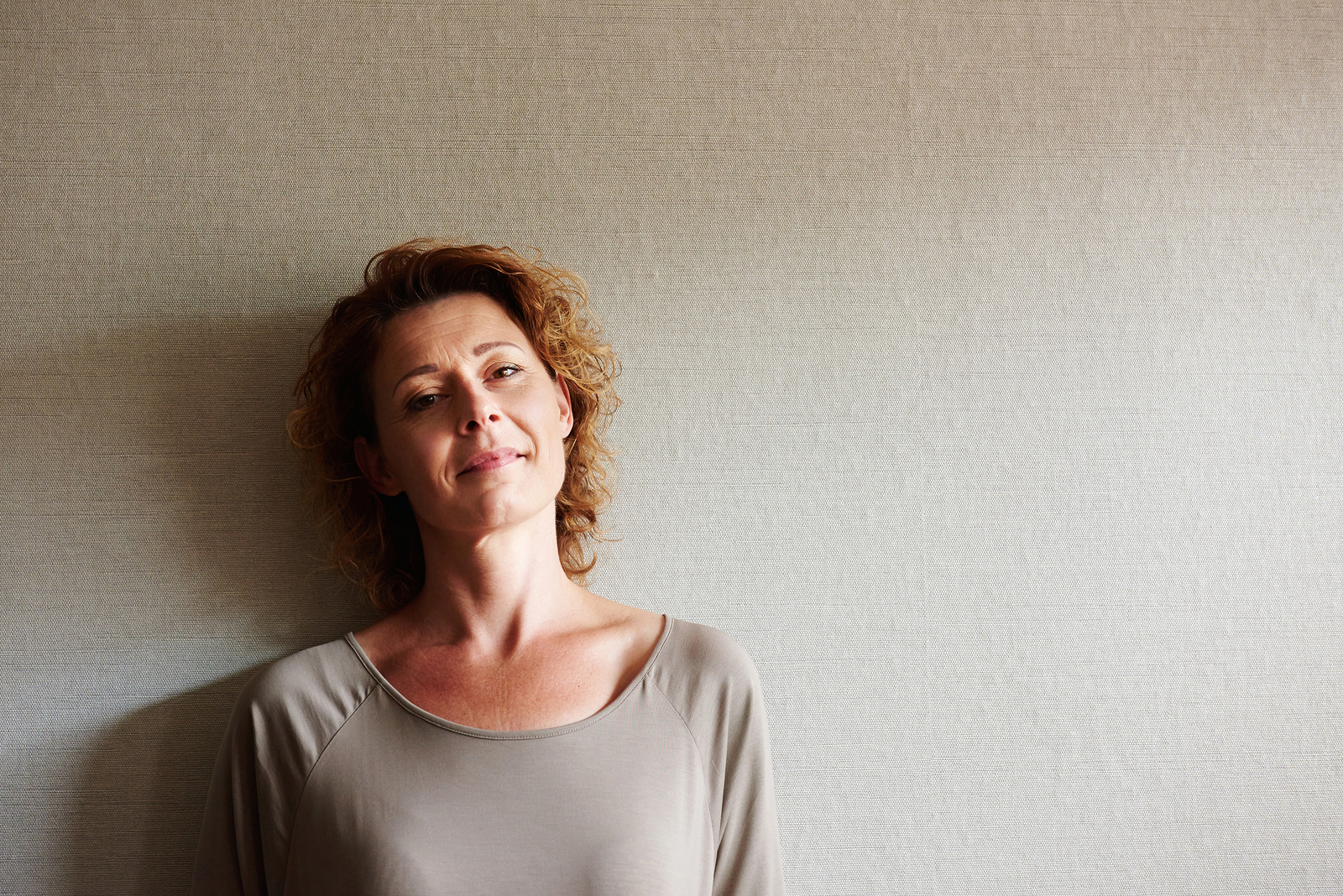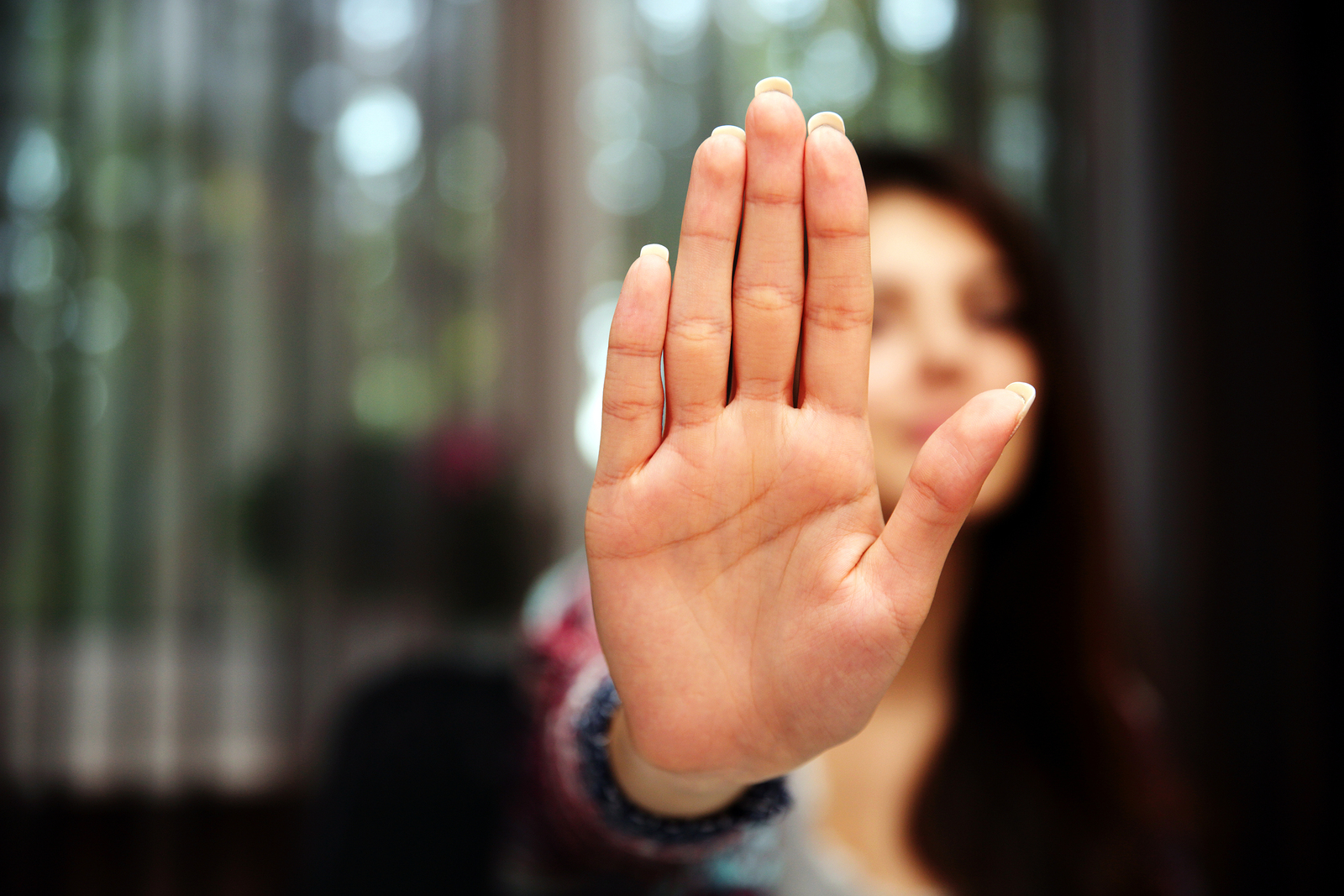What kind of feelings does the word menopause stir in you? In the US, menopause is often seen as either something to dread or to mock. Women share horror stories of unrelenting hot flashes, insomnia, and forgetfulness. Sitcoms and movies are filled with middle aged women losing their minds in one comedic way or another. If women believe what they see, hear or read about menopause it’s no wonder they’re often terrified as the transition approaches.
And a trip to your healthcare provider, particularly if you use a conventional practitioner, doesn’t always ease your mind. For many practitioners, the go-to solution is to pull out a prescription pad, leaving women with the misguided impression that menopause is a disease to be treated, rather than a natural time of transition.
As a woman, you will go through menopause at some point. But it doesn’t have to be a tragedy. Research has shown that the cultural significance and symptoms of menopause vary widely around the world. There is so much we could learn from other cultures about how to embrace and respect this natural end to our reproductive years.
What is Menopause?
Menopause is a biological transition marking the end of a woman’s reproductive years. You are said to be post-menopausal when you’ve gone a full year without a period. That means it’s impossible to know if you are going through menopause until it’s over. For several years prior, you may very well be in perimenopause, the time leading up to that final transition. And the symptoms are the same, since they stem from hormonal changes that happen gradually as you age.
A big issue for women in Western cultures is the negative associations they have with menopause. Far too many women view menopause as “the end” not the beginning of a great new phase of life! It’s true that your childbearing years are ending, and your role as a woman is shifting in new, and sometimes unnerving, ways. Add to that the uncomfortable symptoms that many women experience and don’t believe they can do anything about, and it’s no wonder women are less than thrilled about reaching menopause. But we have more power than we think, if we just stop for a moment to consider what this next phase can bring our way.
How are Menopause and Culture Connected?
One question that has long fascinated me is Do women around the world experience menopause in the same way? The answer, according to research that has been conducted on menopause and culture for decades, is a resounding No!
Scientists have been exploring the idea of a universal “menopausal syndrome” for well over a decade, and ultimately come up with the same answer time and again: it doesn’t exist! That’s because menopause, contrary to popular Western theory, isn’t a disease! That’s why it’s so important to explore all of what a woman is experiencing to best support her as she moves to the next stage of life.
Let’s take a quick look at what some of the research says about the menopause experience around the world, then we’ll talk a bit about how you can change your life and shift your attitudes to celebrate, not fear, this natural transition.
Menopause in Japan
You’ve probably heard that the Japanese are some of the healthiest people in the world. And research has consistently found that Japanese women don’t experience the same symptoms of menopause that are so highly reported in Western cultures. Until the early 2000s, there wasn’t even a term for “hot flashes” until the Japanese media, taking cues from other parts of the world, coined the terms hotto furasshu (hot flash) and horumon baransu (hormone balance) to describe symptoms of menopause.
Now, there seem to be a few more words to describe the experience, and which words are used makes a difference in reported hot flash prevalence, according to a 2005 study. Additionally, women who were premenopausal showed a hot flash prevalence of 13.2%, but those who self-reported that they were pre-kōnenki had none at all. Can language really make that much of a difference? It seems so! Perception can change reality, and this is a great example.
The term kōnenki, broken down, translates as follows: ko “renewal and regeneration”, nen “year or years”, ki “season or energy.” Think about that. The word they use to describe this changing phase of life has a much more expansive meaning than the word menopause, which comes from Greek roots men “month” and pausis “stop or cease.”
So while we in the US are viewing menopause as the end, in Japan the language embraces a new beginning. Isn’t that a better way to look at it?
And it’s not just hot flashes — women in Japan report less symptoms overall than those in many other parts of the world. Why? Many researchers believe it has to do with diet. As a functional medicine practitioner who believes food is medicine, that’s a theory I can get behind! Our modern American diet is filled with processed foods and unhealthy fats which can lead to increased estrogen levels. When your ovaries begin to slow production of estrogen, this can lead to much bigger crash.
Other factors that may contribute to the exemplary health of Japanese women include exercise, public education, access to health care, attention to preventative health, genetics, and culture. What can that tell us as women? That we have much more control over how we experience menopause than we may think!
The Menopause Experience of Aboriginal Women
Researchers have been studying the impact of menopause on rural native women in many cultures for decades as well. Through interviews about women’s health, several of these studies have revealed that many aboriginal women simply don’t experience what are thought to be typical symptoms of menopause, including hot flashes, insomnia and mood swings.
While there are, of course, great variances in experience from one area to another – even among villages in the same regions – many of these women are somehow able to avoid those uncomfortable experiences.
One of the biggest differences that could impact how these women experience menopause is the attitudes surrounding this time in life. A small study in 2003 showed that regardless of symptoms, the attitudes of Mayan women around menopause were quite different than US attitudes. These women looked forward to the newfound freedom and status that menopause brought. Can you believe that? Instead of feeling obsolete and pushed aside, these women feel more valued.
In 2002, researchers conducted a review of studies containing the keywords menopause and at least one of these terms: Aboriginals, Native Americans, Natives, Indians, Metis, Inuit, Eskimo, and Indigenous people. What that review revealed was that menopause seems to have little impact on the daily lives of Aboriginal women. Any effect that was discussed was positive, indicating that women had more freedom to do the activities they themselves consider important.
Wouldn’t it be great if American women could realize how free they can be, if only they celebrate this new stage of life instead of fighting against it?
Attitude Makes a Difference!
The messages that women receive about aging is quite different across cultures, and these messages can make a big difference in how women experience menopause.
In 2015, research published in the journal Menopause found that although symptoms for many women are similar, including hot flashes, weight gain and vaginal dryness, the severity of the symptoms varies depending on nationality. In cultures where age is revered, and older women are thought to be wiser, symptoms were much less troublesome. But in cultures like ours, where age is often seen as a detriment, those symptoms were more debilitating.
.Overall attitude can also impact the intensity of symptoms for some women. A 2010 review of research found that negative attitudes equal higher frequency of symptoms. Of course, many questions still remain – for instance, do negative attitudes lead to depression, or does depression cause the attitude change, and thus the increase in symptoms. Does attitude change the perception of how severe they symptoms are? There are so many areas still to be studied, and so much yet to learn!
One thing, however, does seem clear. Negative social attitudes towards menopause impact how women experience symptoms. Interestingly, research has also shown that attitudes towards menopause shift toward more positive views as women actually experience the transition. Perhaps as they learn that there’s not as much to fear as they’d thought, women are also learning to rejoice in the new found freedom they can find!
Looking at Menopause Through a New Lens
With so much information about cultural perceptions and mpact on menopausal symptoms available, we have an amazing opportunity to shift attitudes and move in a new direction.
The good news is that even here in the US, views on older women are changing. More and more prominent women are continuing to thrive in their field long after 50, and women are celebrating the fun and vitality they can find after 50 — just look at The Red Hat Society! This makes me hopeful for a future where all women can view menopause as a time of freedom and reinvention, rather than an end to the good times.
Changing your attitude can take real determination and effort in a society that, although improving, still sends out a message that youth equals vitality and older women are expected to step aside. Here are a few tips to help you.
Live a Healthy Lifestyle
It’s nearly impossible to have a positive spin when you feel sick or tired all the time. The first step in making a shift in your thinking is to realize that you are the most important person in your own life! It’s essential to take care of your body through regular exercise, a diet full of whole foods and healthy fats, and finding ways to lower your stress levels. If you do, your menopausal symptoms are much less likely to hinder your enjoyment of life.
Support Hormonal Balance to Feel Great
Because imbalanced hormones are so often behind the uncomfortable symptoms experienced in menopause, giving your body all the support it needs to maintain optimal balance is crucial. I recommend that all women take a daily multivitamin to ensure you are getting all the nutrients your body needs. If you need support for specific issues, like thyroid balance or adrenal balance, look at the various programs I offer in my shop to see which one might be right for you. And check out the numerous articles in my health library for more tips on keeping hormones balanced.
Build a Strong Support System
If social ideas of what middle age is like shape attitudes, and attitudes shape experience, then it is essential to surround yourself with encouraging people who support you in making this the best time of your life. It may be time to examine relationships that simply aren’t working for you anymore, and let them go. Or reach out to other women at similar stages in their lives. One friend I know joined an exercise class mainly made up of middle aged women. Together they have set goals, run races, and even taken on Triathlons. And most of them weren’t athletes to begin with — they’re doing things they never dreamed possible! These women are truly embracing the newfound freedom of empty nests and changing life circumstances – and you can too!
Make Joy a Top Priority
One of the best ways to shift your attitude to a more positive perspective is to remember what brings you joy. Doing something you love every single day will clear your mind of the things weighing on it and reduce your overall stress levels. Less stress means greater hormonal balance, giving you even more energy to seek joyful experiences. There are no wrong answers when it comes to finding joy. Anything that you can get fully immersed in counts! So whether it’s dancing, running, bird watching, sailing, crafting or simply sitting on a beach soaking up the sun, get out there and get engaged!
Menopause is a Beginning, Not an End
Finding relief from common symptoms through natural hormonal balance may pave the way for shifting your own attitude about menopause – and the attitudes of those around you! With enough women refusing to treat this transition as the end of life as they know it, there is great opportunity to thrive, not just survive, in menopause!
It’s time women recognize that age is simply a number, and how you live your life means so much more than how many birthdays you’ve had! Women have great power, and it’s time our modern society recognizes that. Let it start with you!
References:
https://womeninbalance.org/2014/09/17/menopause-around-the-world/
https://www.sciencedirect.com/science/article/abs/pii/S0277539516301777
https://www.everydayhealth.com/menopause/menopause-and-culture.aspx
https://www.figo.org/news/how-culture-influences-menopause-0014979







